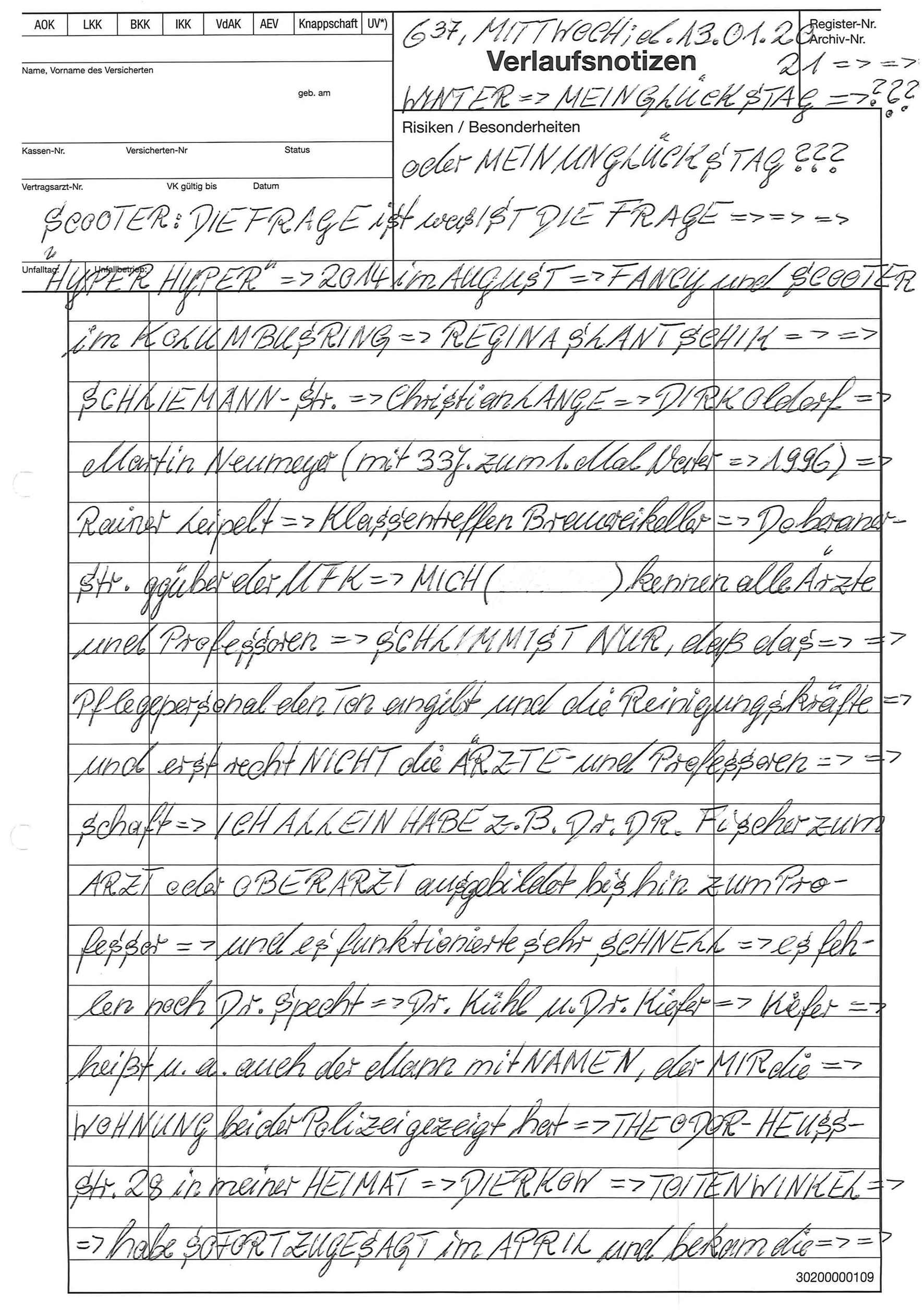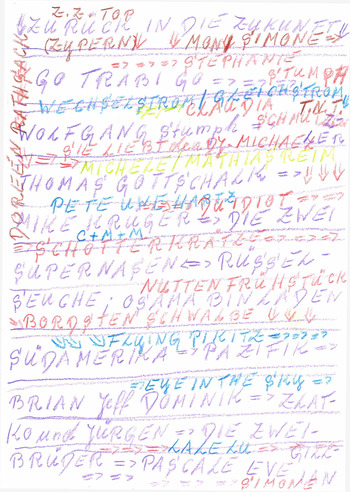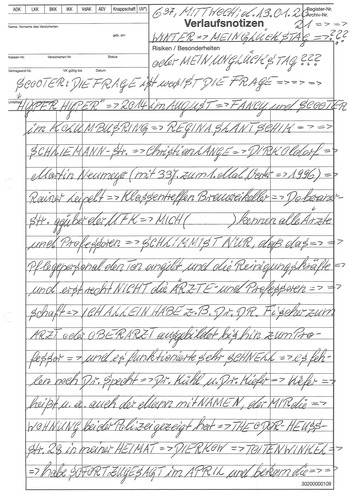In a small market town in northern Germany sits a woman who writes all day. She covers everything that she can write on: newspapers, postcards, books, prescription pads, medical documentation, fire escape plans. She calls it her life story (Lebenslauf). They are collections of recollections, from dates and locations to poems and stories.
Hypergraphia has been most frequently described in the context of the eponymous Geschwind syndrome, where it tends to be accompanied by hyperreligiosity, hyposexuality, circumstantiality and an ‘intensified mental life’ and is an interictal phenomenon of temporal lobe epilepsy. Hypergraphia is not, however, a purely neurological symptom. Within psychiatry it is a written manifestation of formal thought disorder.
The extracts in Figs 1 and 2 are taken from the writings of a woman with chronic paranoid schizophrenia. The form of the text shows a flight of ideas, which is also evident in her logorrhoeic speech. Her writing contains evidence of perseveration, word approximations, neologisms, as well as clanging and punning, which often leads to thematic derailment. There is delusional content, with evidence of grandiosity (that she has educated the medical staff), and delusional misidentification syndrome (that the ward psychologist is actually her daughter) (Fig. 2).

Fig. 1 Extract 1: 1 October 2020.

Fig. 2 Extract 2: 13 January 2021.
‘6:37, WEDNESDAY THE 13.01.2021 -> -> WINTER -> -> MY LUCKY DAY -> -> ??? or MY UNLUCKY DAY ??? SCOOTER: THE QUESTION is what IS THE QUESTION -> -> -> “HYPER HYPER” -> -> 2014 AUGUST -> FANCY and SCOOTER in KOLUMBUS RING -> REGINA SLANT CHIC -> -> SCHLIEMAN-STR. -> Christian LANGE -> DIRKOldorf … I ([redacted]) know all of the doctors and Professors -> THE WORST is that -> -> the Nurses and cleaning staff set the tone -> -> and certainly NOT the doctors or professors -> -> professorship -> -> I SINGLEHANDEDLY trained all of the DOCTORS and CONSULTANTS until they became professors for example Dr. DR. Fischer -> -> and it worked very FAST -> I am only missing Dr. Sprecht -> Dr. Kühl and Dr. Kiefer -> Kefer -> that is also the NAME of the man who showed me the -> flat with the police’.
The texts have changed dramatically since her admission. Unmedicated, they were colourful, disorganised and largely incoherent (Fig. 1). Since the introduction of sodium valproate the colours have almost entirely disappeared. Following medication with risperidone and clozapine the content has become easier to follow; the structure more formal.
The false association between madness and creativity is too often a kind of fetishistic voyeurism. It simultaneously degrades the craftsmanship of artists, as well as the very real suffering of those with pervasive mental illness. The writer of these extracts takes no pleasure in the recording of her Lebenslauf. She wants her own home, she wants to see her family again and she wants to get well. As expressed in one of her poems, she knows this particular dream is not likely to become a lasting reality:
Consent to use these extracts was obtained from the woman as well as her independent mental health advocate. Names have been changed to preserve anonymity.






eLetters
No eLetters have been published for this article.